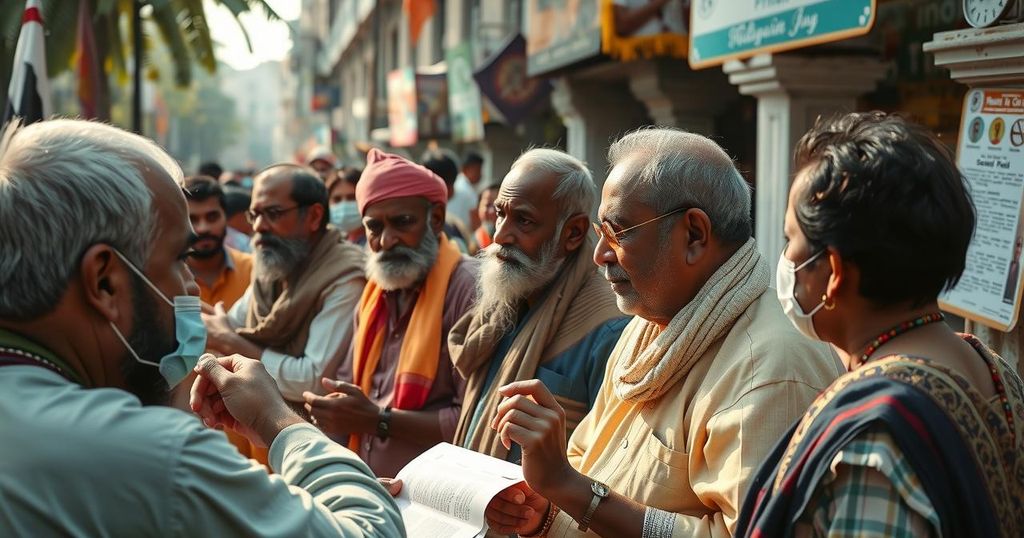Derek O’Brien, TMC MP, emphasizes the Indian Constitution as a vital, evolving document during his Rajya Sabha address. He criticizes the ‘one nation, one election’ bill, asserting the need for federal representation, while underscoring women’s declining presence in the Lok Sabha. O’Brien also claims that central schemes, such as ‘Ayushman Bharat,’ are plagiarized from West Bengal. Contributions from other party leaders emphasize ongoing societal inequalities and potential governmental misconduct.
In a recent session of the Rajya Sabha, Trinamool Congress (TMC) Member of Parliament, Derek O’Brien, articulated the need to view the Indian Constitution as a vital and evolving entity, stating that it is “more than a book in the library” and is in essence, a “living, breathing document on the streets of India.” This declaration came during a discussion on the Constitution against the backdrop of the introduction of the ‘one nation, one election’ bill in the Lok Sabha, which O’Brien criticized for undermining federalism. He emphasized that the government struggles to conduct even single-phase elections in states and urged the ruling party to allow adequate representation for the opposition.
O’Brien recalled West Bengal Chief Minister Mamata Banerjee’s enduring struggle for the rights of the people, particularly in advocating for women and farmers. He also raised concerns regarding the dwindling representation of women in the Lok Sabha, which has dropped from 14.5 percent in the last session to 13.5 percent currently. Moreover, he claimed that the central government has appropriated various schemes from West Bengal, citing the ‘Swasthya Sathi’ scheme, which he noted is named after women in the households, contrasting it with ‘Ayushman Bharat.’
Complementing O’Brien’s statements, P P Suneer of the CPI highlighted persistent discrimination faced by marginalized groups, including Dalits and Adivasis, while M Rao Yadav Beedha of the TDP pointed out the disparity in the application of equality before the law. Additionally, P Girirajan from the DMK accused the ruling Bharatiya Janata Party of engaging in unethical tactics to undermine opposition governments, a claim supported by references to the misuse of gubernatorial powers in opposition-led states.
The discussion regarding the Indian Constitution and its interpretation as a living document has gained prominence in recent years, emphasizing its relevance to contemporary issues in governance. The introduction of the ‘one nation, one election’ bill has ignited debates about federalism and the democratic process in India. The reflections by various political leaders on the representation of women and marginalized communities underline ongoing societal challenges within the framework of the Constitution, illustrating the necessity of rigorous dialogue about its application and the protection of democratic values.
In conclusion, Derek O’Brien’s remarks in the Rajya Sabha reflect a crucial dialogue on the nature of the Indian Constitution as an active and dynamic framework for governance. His critique of the government’s legislative actions and emphasis on the representation of marginalized groups underscore the importance of addressing these issues to uphold the democratic principles enshrined in the Constitution. The contributions from other leaders further enrich the conversation, highlighting the need for an inclusive dialogue in addressing the disparities within society.
Original Source: www.hindustantimes.com






